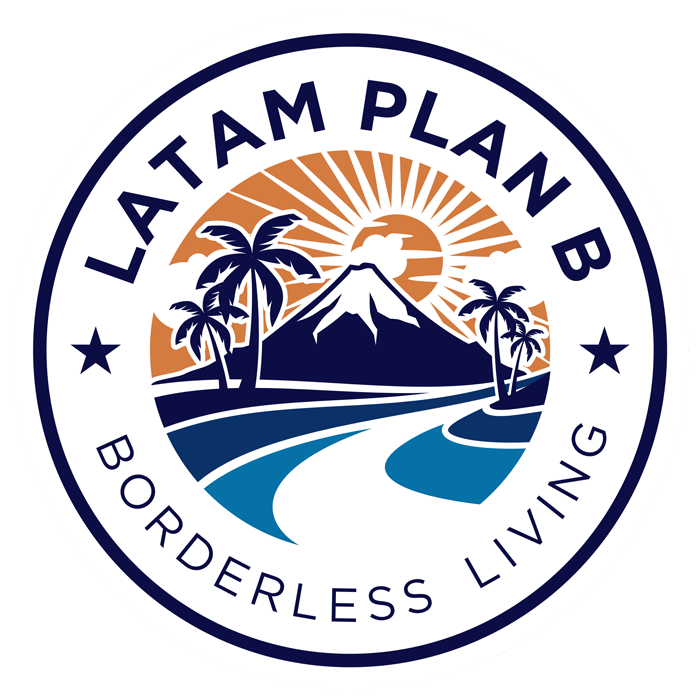Latin America is a diverse and vibrant region, known for its rich culture, history, and natural beauty, which offers an affordable and high quality of life. It’s no wonder why many people from all over the world are moving there.
For those interested in relocating, there are two main options for staying long-term: getting residency or citizenship. While these terms may sound similar, they actually refer to very different things, and it’s important to understand the distinction between them. But the good news is, obtaining residency or citizenship is easier than you may think!
First, let’s define our terms. Residency and citizenship are two different legal statuses that allow you to live and work in a country. Residency refers to the right to reside in a country as a foreigner, while citizenship means that you are recognized as a member of that country and have the right to vote, hold public office, and travel with a passport issued from that country.
In Latin America, the process of obtaining residency and citizenship can vary depending on the country. However in general, getting a residency is often the first step toward obtaining citizenship. Let’s take a closer look at the differences between the two.

Residency
Residency in Latin America is often easier to obtain than citizenship. Many countries in the region offer different types of residency permits, such as temporary or permanent.
Temporary residency usually lasts for one to two years and may be renewable. This type of residency is often granted to people who are studying, working, or investing in the country. On the other hand, permanent residency allows you to reside in the country indefinitely and may also lead to citizenship in some cases.
The process of obtaining residency in Latin America usually involves providing proof of financial means, a clean criminal record, and sometimes a medical examination. Each country will have its own specific requirements and application process, but generally, it involves submitting an application, paying fees, having an interview, and waiting for approval.
There are several benefits of having residency in Latin America as an expat, including:
- Visa-free travel within Latin America
- No more nervous moments at immigration after multiple entries
- Ease of opening an account with local banks
- Ability to obtain a local driver’s license, and buy and register a car
- Entry into business opportunities within Latin America
- Ability to work and find employment
- Tax benefits, such as reduced income tax rates or exemptions on certain types of income
- Access to public healthcare and education systems
- Access to special rates and discounts, such as entry into national sites and events
Residency simply gives you more freedom of choice in Latin America. For example, the very popular website, Mercardo Libre, which is like the Latin American version of eBay meets Craigslist, is only available to residents and citizens. And in some countries, an official residency also makes it much easier to ship packages into that country.

Citizenship
The requirements for obtaining citizenship in Latin America vary from country to country, but in general, you must have lived in the country for a certain number of years and have a clean criminal record.
In some countries, such as Brazil, Peru, and Argentina, citizenship can be granted to those who’ve lived in the country for two or three years, respectively, as permanent residents. Other countries, such as Colombia and Mexico, require you to have lived in the country for five years before applying for citizenship.
In addition to residency requirements, you must pass a citizenship test, which may include language proficiency and knowledge of the country’s history and political system.
One of the benefits of obtaining citizenship in Latin America is the ability to vote and hold public office. It also offers greater stability and security, as you’re recognized as a member of the country, have the right to remain in the country indefinitely, and the right to travel with a passport issued by that country. You can also generally pass your citizenship onto your children.
Legal status
The legal status of an expat as a resident in a Latin American country will depend on the specific country’s immigration laws and regulations. In general, most Latin American countries have different categories for foreigners’ legal status, such as tourist, temporary resident, and permanent resident.
Tourists are generally allowed to stay in the country for a limited period, usually up to 90 or 180 days, and are not allowed to work or engage in business activities. Temporary residents are allowed to stay in the country for a longer period, usually one or two years, and can work and engage in business activities. Permanent residents are allowed to stay in the country indefinitely, and enjoy most of the same rights and privileges as citizens, including the ability to work, own property, and access social services.
Citizenship in a Latin American country refers to a legal status that provides you with the same rights and privileges of a full member of that country’s society.
Rights and privileges
Citizenship in Latin America provides you with more extensive rights and privileges than temporary or permanent residency.
As a resident, foreigners are entitled to the right to work, access to healthcare and education, and protection under the law. However, they are not entitled to all of the same rights and privileges as citizens.
Citizenship provides foreigners with the same rights and privileges as a member of that country, including the right to vote and participate in the political process, hold public office, and access social services and benefits. Citizenship also provides foreigners with the right to obtain a passport from that country, which allows them to travel more easily and enjoy wider freedom of choice, such as visa-free travel to other countries.
Tax
Tax requirements can vary by country in Latin America, but generally speaking, residency and citizenship can have different implications for tax purposes.
In many Latin American countries, residents are typically required to pay taxes on their worldwide income, regardless of where it was earned. This means that if you are a resident of a Latin American country, you may be required to pay taxes on income earned outside of the country.
Citizenship, on the other hand, may not necessarily have a direct impact on tax requirements. However, some countries may offer certain tax benefits or exemptions to their citizens. For example, in some countries, citizens may be entitled to a higher personal deduction or tax credit than non-citizens.
It’s important to note that developing a plan to reduce tax benefits through a second citizenship or residency requires a different approach for US citizens and US nationals. Every case and circumstance is unique, so careful planning and confirmation from your CPA is necessary.
Requirements
The requirements for obtaining residency and citizenship in Latin America are different. Generally, residency requirements have fewer conditions to meet than citizenship.
To obtain residency in a Latin American country, a foreigner usually needs to provide proof of identity, a valid passport, and a clean criminal record. Depending on the country, they may also be required to demonstrate proof of income, a local address, and other basic documentation.
Generally, to become a citizen of a Latin American country, a foreigner must have legal residency in the country for a specified period, typically between two to five years, depending on the country. They must also fulfill other criteria, such as having a clean criminal record and good moral character.
Final thoughts
Getting residency and citizenship in Latin America are two distinct paths with different implications for your legal status, rights, and responsibilities. Residency is the first step towards establishing a more permanent presence in a country, while citizenship grants you full rights and privileges as a member of that country.
Ultimately, you will have greater freedom of movement and choice, and stability and security in life if you’re able to obtain citizenship and a passport from a Latin American country.
For expert advice on how to get residency or citizenship in Latin America, contact our team at Latam Plan B
